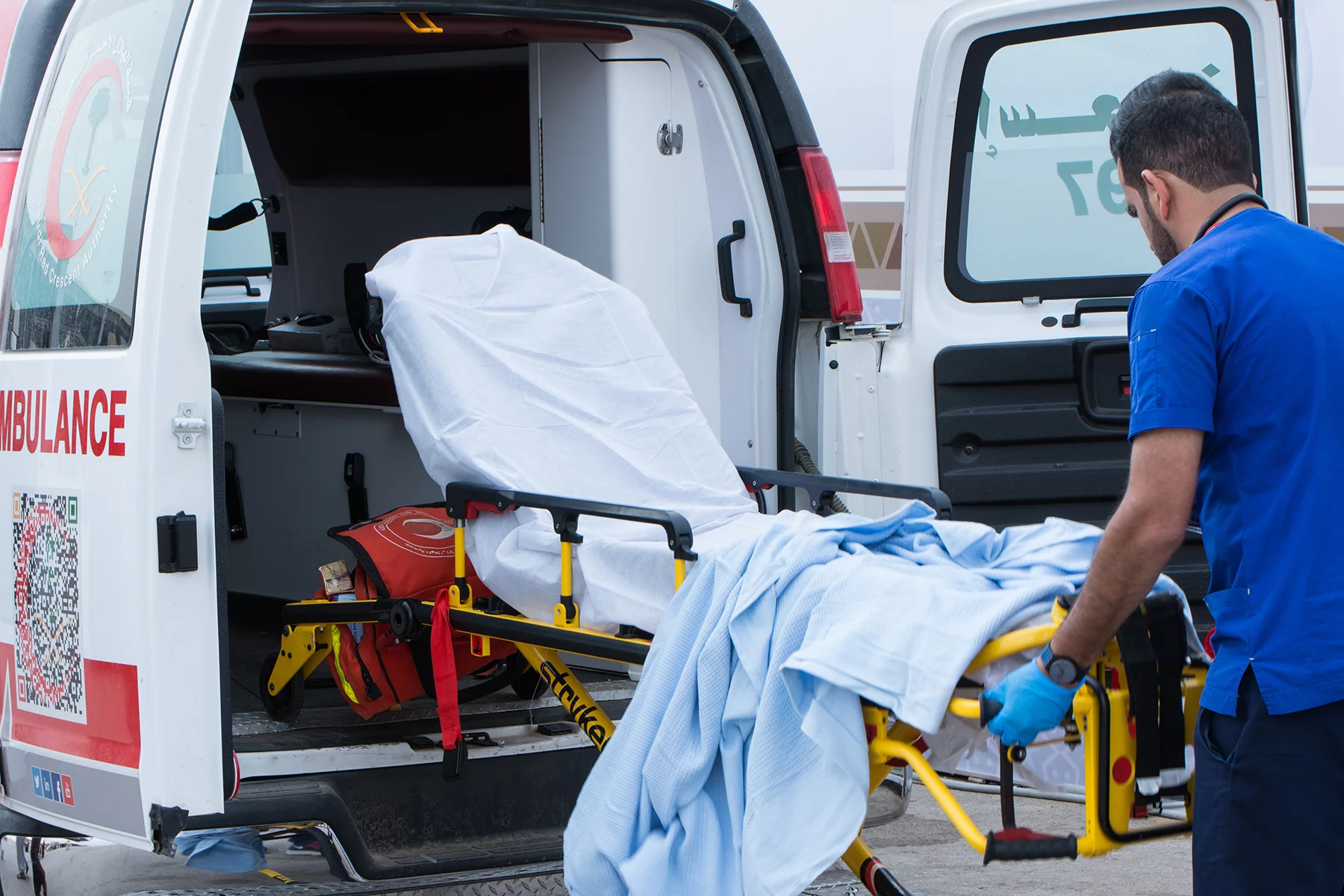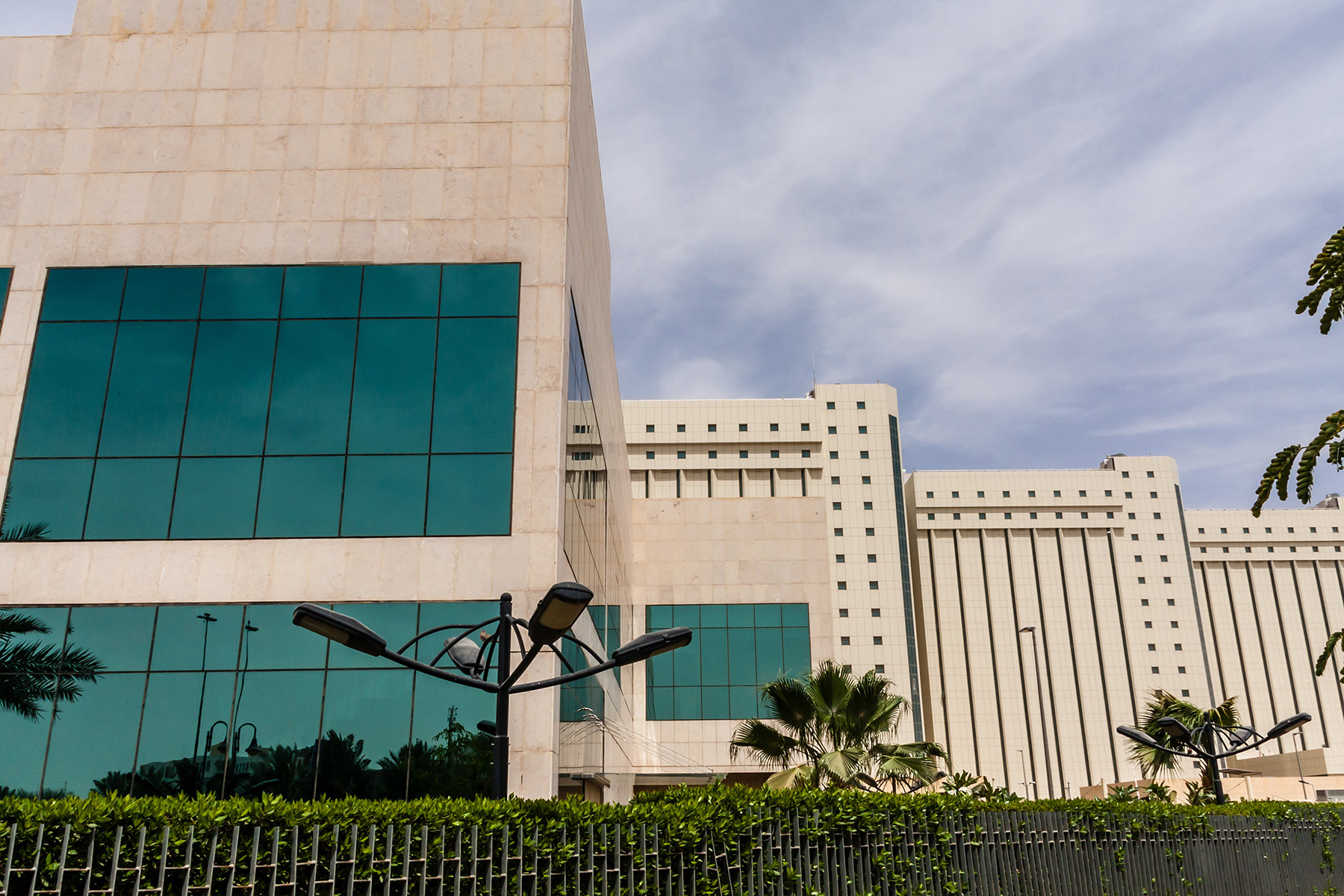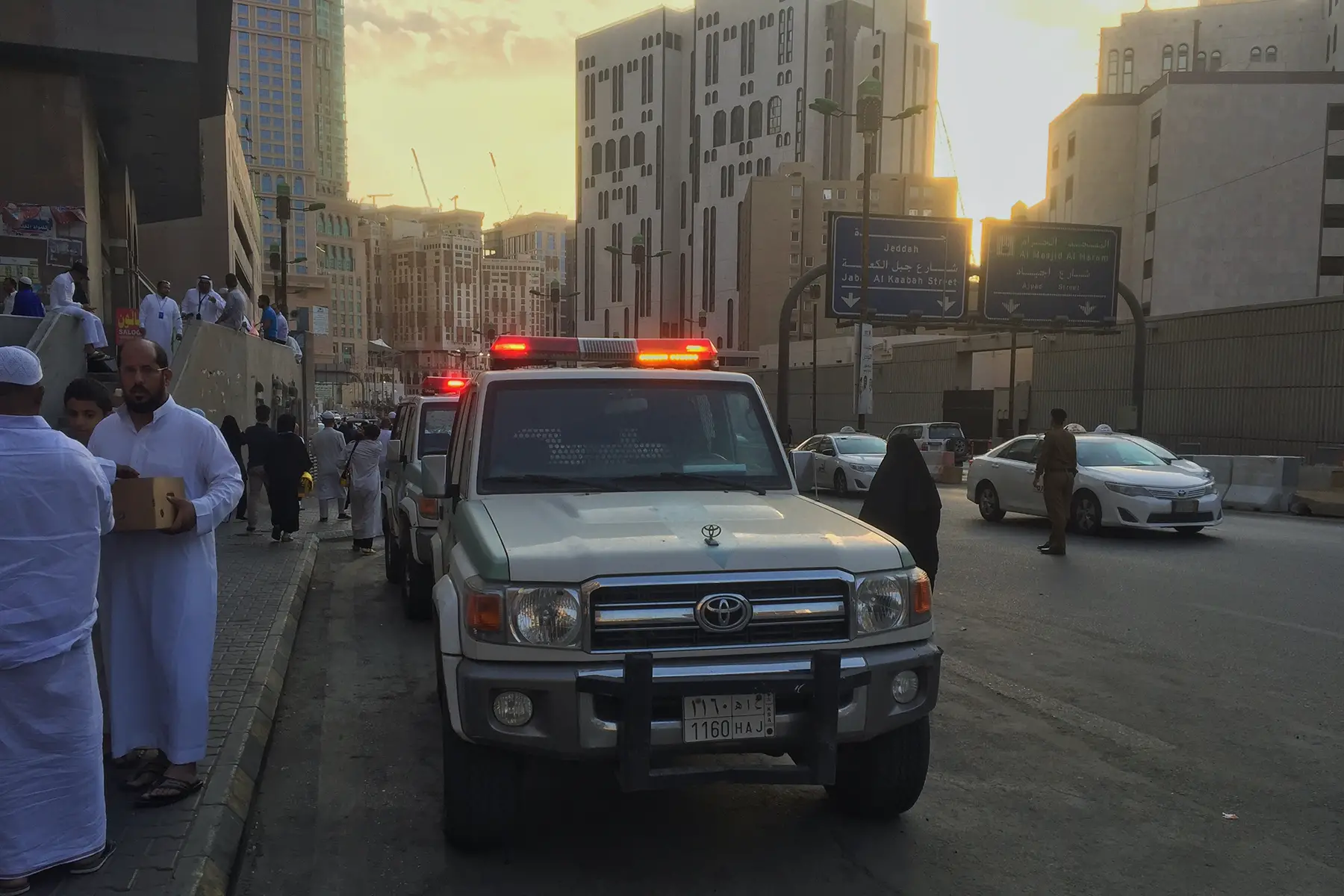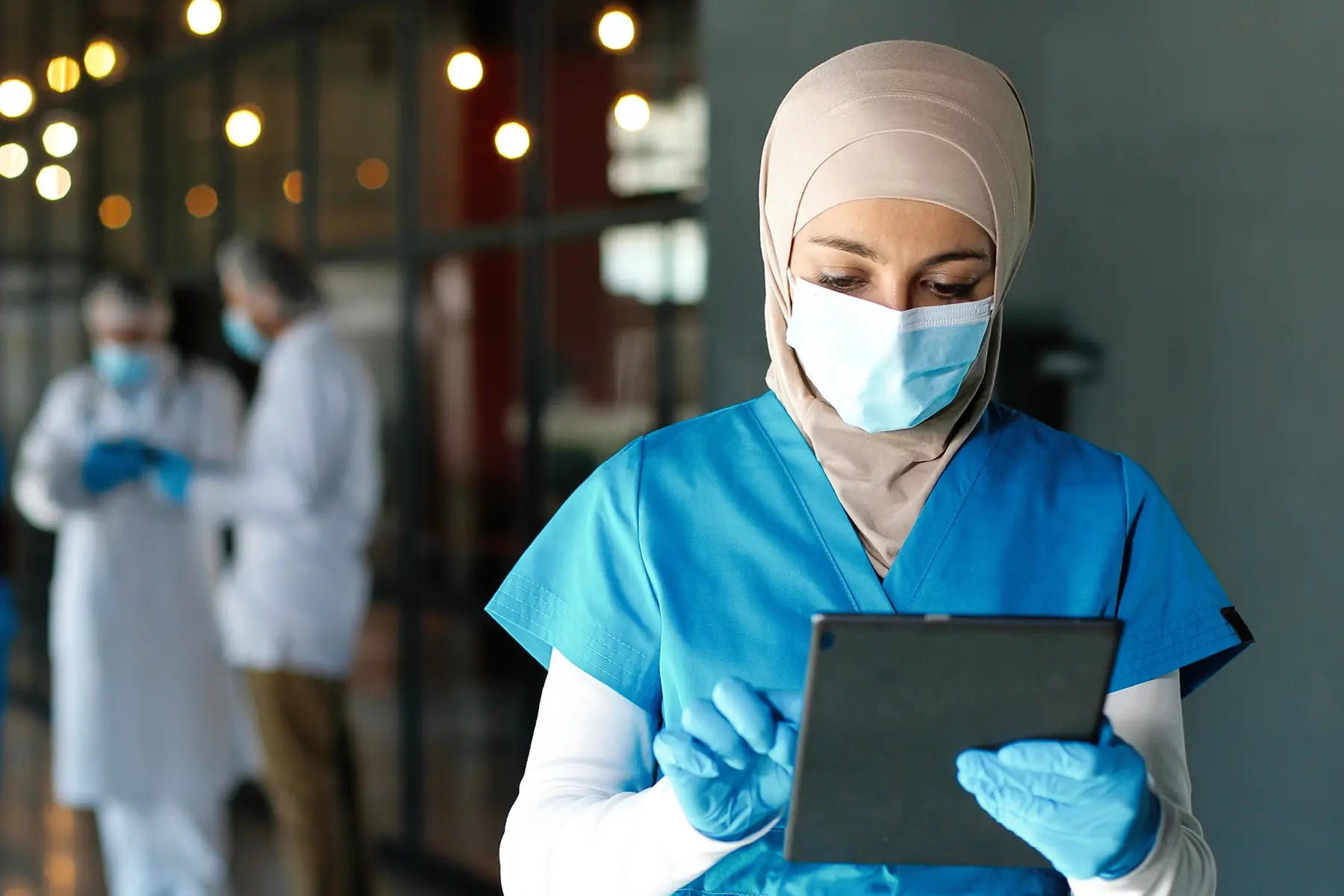From traditional remedies to high-tech hospitals, Saudi Arabia’s healthcare system covers a lot of ground — just not the same ground for everyone. Whereas Saudi citizens enjoy generous public coverage, expats need insurance, and everyone’s learning to navigate a system that’s fast evolving under Vision 2030.
Whether you’re booking a check-up or just wondering how prescriptions work, here’s your guide to staying healthy in the Kingdom:
- How does healthcare work in Saudi Arabia?
- Who can access healthcare in Saudi Arabia?
- Do I need private healthcare in Saudi Arabia?
- How to register for healthcare in Saudi Arabia
- Overview of primary healthcare in Saudi Arabia
- Islamic Medicine in Saudi Arabia
- Practical medical phrases in Arabic
- Useful resources
Cigna Global
Enjoy peace of mind while living in Saudi Arabia with Cigna Global’s long-term international health insurance plans (12+ months). Get tailored coverage, direct billing with many providers, complex case management, and global care on demand, with access to a network of 1.5+ million doctors, specialists, and therapists.
How does healthcare work in Saudi Arabia?
Does Saudi Arabia have universal healthcare?
Saudi Arabia’s healthcare system (نظام الرعاية الصحية) consists of a wide range of public and private healthcare providers. Together, they offer broad universal coverage to all residents.

The public system is well-established, widespread, and largely free for Saudi citizens. Nationals from the Gulf Cooperation Council (GCC – Bahrain, Kuwait, Oman, Qatar, and the UAE) typically receive discounted rates, while expats from elsewhere must have private health insurance (though this is usually provided by their employers).
That said, having mandatory private insurance isn’t all that bad. Private health facilities often have shorter waiting times and higher levels of comfort and luxury.
Is healthcare good in Saudi Arabia?
The Saudi healthcare system has its challenges. Saudi Arabia ranks 64th in the world on the 2023 Legatum Prosperity Index, with a score of 60.8/100. The index warns especially against the high obesity rate and the prevalence of non-communicable diseases. The country’s overall health is slightly higher (placing 55th), presumably due to people’s good physical health and longevity.
Meanwhile, the 2024 World Index of Healthcare Innovation ranks Saudi Arabia in last place (32nd out of 32). Although healthcare is affordable, the country has some suboptimal health outcomes, as evidenced by the comparatively low life expectancy. However, the WIHI does note that Saudi Arabia is rapidly modernizing its health insurance system; it expects the score to improve in the near future.
Indeed, the Kingdom is transforming the current healthcare system as part of the Vision 2030 program, and has made major investments in infrastructure and better quality of care. Other recent government initiatives include the introduction of universal health coverage (UHC), healthcare technology, and accreditation programs.
Who administers Saudi healthcare?
The national government – more specifically, the Ministry of Health (MOH – وزارة الصحة) – regulates healthcare in Saudi Arabia. It sets the country’s health policy and strategy and establishes its long-term health objectives. It also oversees the Saudi Commission for Health Specialties (SCFHS – الهيئة السعودية للتخصصات الصحية), which regulates healthcare professionals, and the Council for Health Insurance (CHI – مجلس الضمان الصحي), which supervises the mandatory health insurance system for expats.
On a local scale, each of Saudi Arabia’s 13 provinces manages its own health budget, plans, and infrastructure. The Regional Health Directorates are responsible for organizing and delivering health services in their area, meaning they’re responsible for deciding where clinics and hospitals are actually built.

Finally, family medicine doctors (GPs – طبيب الأسرة or طبيبة الأسرة) serve as the primary point of contact for most healthcare needs. They provide basic treatment and can refer you to a specialist or hospital if necessary.
Does Saudi Arabia have free universal healthcare?
Yes, Saudi citizens receive free (or low-cost) universal healthcare. Expats and other foreign nationals must have private insurance to access non-emergency medical care (usually through their employer).
Even then, almost all Saudi insurance plans require patients to pay copayments for doctor visits, medications, and sometimes treatments. For example, you can expect to pay around SAR 20–30 for consultations, and 20–30% of prescription costs.
Who can access healthcare in Saudi Arabia?
Healthcare is a fundamental right in Saudi Arabia. As such, everyone can access medical care to some degree or another, including asylum seekers, refugees, and undocumented immigrants.
However, for non-urgent medical help, you have to have health insurance – either public, private, or both. We’ll explain more about this below.
Can foreigners access public healthcare in Saudi Arabia?
GCC expats can benefit from subsidized public healthcare, though the specifics vary by region and service. Foreign nationals from elsewhere do not have access to public healthcare in Saudi Arabia.

Our article on Saudi health insurance covers the topic more extensively, but here’s a quick summary:
- Foreign workers must receive private medical coverage through their employer
- Expat freelancers must arrange for a private insurance policy on their own
- Job seekers with a valid visa must take out Saudi visitor health insurance
- International students must have private insurance that covers them for the duration of their stay
- Foreign pensioners must arrange for private health insurance
- Asylum seekers and refugees can access emergency hospital care without medical insurance. However, routine medical treatment requires private insurance or out-of-pocket payment.
APRIL International
Looking for expat-friendly health insurance in Saudi Arabia? APRIL International has a long history of providing health coverage tailored to the unique needs of the expat lifestyle, ensuring peace of mind for you and your family. Whether you’re relocating to Saudi Arabia or simply staying short-term, APRIL International has the right policy for you.
Do I need private healthcare in Saudi Arabia?
With the danger of repeating ourselves, expats do require private health coverage in Saudi Arabia. But Saudi nationals could also benefit from private insurance.
Although public healthcare is free or low-cost, this also means that hospitals can have long waiting times, especially for non-urgent care. The private sector has more luxurious health facilities, shorter wait lists, and offers access to certain specialist treatments. Some private insurance plans also cover copayments and compensation during hospitalization.

Why get private health coverage in Saudi Arabia?
There are multiple reasons why getting private health coverage is a good idea:
- If you want comprehensive coverage of dental, vision, and hearing care, fertility treatments, and alternative medicine
- If you want full access to more premium healthcare, such as private hospital rooms and nurses
- If you are ineligible for public healthcare (e.g., non-GCC expats)
Private healthcare providers in Saudi Arabia
There are many private health insurers in Saudi Arabia, and it’s worth shopping around to find the best deals. If you want to avoid any possible coverage gap, travel outside the country a lot, or prefer expat-focused care, private international health insurers offering coverage in the Kingdom include:
If you need help deciding on medical coverage for your visa, it’s also worth reaching out to an insurance broker who can explain your options. Our article on health insurance in Saudi Arabia has more information.
How to register for healthcare in Saudi Arabia
Your first step – even before moving to Saudi Arabia – is to check your visa requirements. For example, job seekers can enter the country on a tourist visa, which requires them to purchase mandatory visitor medical insurance. Expats with a premium residency visa, on the other hand, must have regular private insurance.

To register for private insurance, you can reach out to your preferred insurer.
Of course, when your new employer registers you for private health coverage, you’re pretty much done. However, if you are responsible for arranging insurance yourself, you can contact the insurance provider directly. They will be more than happy to walk you through the process. Beware of pushy salespeople, though! You might walk away with a completely different policy than you had planned.
Overview of primary healthcare in Saudi Arabia
Saudi healthcare professionals
Doctors and specialists
Family medicine doctors or GPs are often the first point of contact in Saudi healthcare. They handle routine medical issues, conduct light tests, and coordinate follow-up treatments. They typically work in health clinics, centers, and hospitals.
Saudi citizens are usually assigned to a local primary health care center, but may also visit other public clinics, depending on availability. If you rely on private healthcare, you can choose any doctor you prefer.
In 2022, Saudi Arabia had 3.1 doctors per 1,000 residents, well above the regional average of 1.2 per 1,000 people (2020). The country also has an estimated 5.5+ nurses per 1,000 residents (2019), which is around a third less than the world average of 8.71 per 1,000 people (2020).
Find a doctor near you using any search engine or the search function of the CHI website.
Saudi dentists
Public healthcare covers basic dental care, including yearly check-ups, cleanings, fillings, and tooth extractions. More complex or cosmetic dental work, such as implants, adult orthodontics, and cosmetic crowns, is often not covered.
Dentistry is a (exponentially) growing profession in Saudi Arabia. In 2020, there were approximately 27,200 registered dentists; by mid-2023, the number had nearly doubled to over 42,900. Around 38.5% of these were foreign nationals.

Not all private health insurance plans cover dental treatment; be sure to check what’s covered by your provider before scheduling an appointment.
Saudi healthcare facilities
Health centers and clinics
Family doctors work from primary health care centers (PHCCs – مركز رعاية صحية أولية), which are located throughout Saudi Arabia. Opening hours for public centers are typically from 08:00–16:00, Sunday to Thursday, with most closed on weekends and public holidays. Private clinics often have split shifts (for lunch and Dhuhr prayer), operating from 08:00–12:00 and 16:00–21:00.
If you need medical help outside regular hours, you can visit the local hospital emergency department. Saudi Arabia does not have on-call doctor services for after-hours care.
Although some PHCCs offer walk-in consultations, most require you to book an appointment in advance. And while some family doctors work solo, larger clinics often have multiple doctors, so you might not always see the same person unless you specifically request it.
Saudi citizens usually get free consultations; expats get coverage through private insurance. That said, depending on your insurance plan, you may face additional costs for tests or scans.
Check the CHI website to find a health center or clinic near you.
Hospitals in Saudi Arabia
There are three types of hospitals (ملجأ خيري) in Saudi Arabia: public, private, and military. All are regulated by the National DOH.
If you are in a life-threatening situation, go to the nearest emergency room (غرفة الطوارئ). You can also call 997 for ambulance services or 991 and 999, which are the main emergency numbers. However, because ambulance response times can vary, it is advisable to drive directly to the nearest hospital.
In 2021, Saudi Arabia had 287 public and 159 private hospitals. For more on hospital stays and potential fees, check out our article on hospitals in the KSA.
Pharmacies in Saudi Arabia
There are more than 10,300 pharmacies (صيدلية) across Saudi Arabia, so it’s usually easy to find one nearby. Pharmacies are commonly located in or near hospitals, health centers, shopping malls, and busy shopping areas. You can recognize them by their bright signs, often displaying the word ‘pharmacy’ in Arabic, and sometimes with symbols like a green cross or a mortar and pestle.

Most pharmacies are open from 08:00–23:00, Saturday to Thursday, often with a long break in between. Many open on Fridays as well, though start later in the afternoon (around 16:00), after the Friday prayer. In major cities, it’s also common to find 24-hour pharmacies, especially near hospitals and in larger neighborhoods.
If you need urgent medication outside regular hours, look for a 24-hour pharmacy (صيدلية 24 ساعة), which are widely available in cities. You can also ask your local hospital or use Google Maps to find an open pharmacy near you.
Specialized healthcare in Saudi Arabia
Mental healthcare
Patients struggling with addiction or mental health issues can seek help through mental health clinics (عيادات الصحة العقلية). These centers usually have multidisciplinary teams that include psychologists, psychiatrists, social workers, nurses, counselors, and other mental health professionals. For more serious conditions, you may be referred to a specialized psychiatric hospital or a residential care facility.
Mental health services are more commonly available in larger cities like Riyadh, Jeddah, and Dammam, with limited access in smaller towns and rural areas.
For Saudi citizens, public mental healthcare is generally free of charge, though waiting times can be long, particularly for psychological counseling and child mental health support. Private mental health services can offer faster solutions, but this requires private health coverage or out-of-pocket payments.
Historically, mental health issues are seen as a sign of personal weakness, lack of faith, or a family problem best kept hidden. However, the situation is improving. In recent years, government campaigns have promoted mental health awareness as part of Vision 2030 reforms. Telehealth services and online therapy have also made it easier for people to avoid the stigma and seek help discreetly.
Children’s healthcare
Children can get free public healthcare if they’re Saudi citizens. This includes vaccinations, checkups, and basic dental care (but not braces). Expat children in Saudi Arabia are usually covered under their parents’ health insurance and get access to free healthcare through that.

You can take your child to the same family medicine doctor or health center that you go to. They handle most children’s health needs and can refer you to a pediatrician if need be.
There are also government programs and centers – like the Ministry of Health and the King Salman Center for Disability Research – that can help if your child needs extra support, such as mental health care or treatment for more serious conditions.
Women’s healthcare
Until fairly recently, women required permission from male guardians to receive certain treatments. While these laws have relaxed, women’s healthcare facilities in Saudi Arabia are still not as advanced as those in neighboring Gulf countries.
Public healthcare is primarily focused on pregnancy and menstrual cycles. While the country does have private gynecological services, be sure to check your insurance coverage before booking an appointment.
Birth control (وسائل منع الحمل) such as the pill, condoms, and Intrauterine Device (IUD) are widely available in Saudi Arabia. Howeve, since sex is illegal outside of marriage, you may have to show your marriage certificate before getting the contraceptive. Likewise, if you or your partner becomes pregnant outside marriage, you could both face penalties like imprisonment and deportation. Although legal action is uncommon in practice, it’s still advisable to exercise caution.
For more information, read our detailed articles on women’s health, having a baby, and sexual and reproductive health in Saudi Arabia.
Islamic Medicine in Saudi Arabia
Alternative and complementary healthcare services – known as Islamic Medicine (الطب التكميلي والبديل) – are well-respected in Saudi Arabia. Common treatments include chiropractic care, acupuncture, cupping therapy (hijama), herbal medicine, and other holistic therapies.

You can access alternative medicine at specialized health clinics, wellness centers, larger pharmacies, and herbal medicine shops. Depending on your location, you might even go to a dedicated department inside a local hospital.
Islamic Medicine is usually not covered by insurance plans in Saudi Arabia. Although some premium policies may offer limited coverage of things like chiropractic sessions, this is rare. Check your insurance details before booking an appointment.
Practical medical phrases in Arabic
Some useful Arabic phrases and vocabulary to learn are:
| English | Arabic | Arabic pronunciation |
| Help! | يساعد! | yusaeidu! |
| Call an ambulance! | اتصل بالإسعاف! | aitasil bial’iiseaf! |
| I’ve had an accident | لقد تعرضت لحادث | laqad taearadat lihadith |
| I feel like I’m dying | أشعر وكأنني أموت | ‘asheur waka’anani ‘amut |
| doctor’s office | عيادة الطبيب | eiadat altabib |
| pain | ألم | ‘alam |
| headache | صداع | sudae |
| stomach ache | ألم المعدة | ‘alam almaeida |
| fever | حمى | hamaa |
| cough | سعال | sieal |
| food poisoning | التسمم الغذائي | altasamum alghidhayiyu |
| heart attack | نوبة قلبية | nubat qalbia |
| prescription | وصفة طبية | wasfat tibiya |
| vaccine | تلقيح | talqih |
| x-ray | الأشعة السينية | al’ashieat alsiynia |
| CT scan | التصوير المقطعي المحوسب | altaswir almaqtaeiu almuhawsib |
Useful resources
- Ministry of Health – official government website for the ministry responsible for healthcare in Saudi Arabia
- Gov.sa – official government website with information about Saudi healthcare
- Council of Health Insurance – official government website with information on health services in Saudi Arabia
- Vision 2030 – government website with information on Saudi Arabia’s Vision 2030 program











